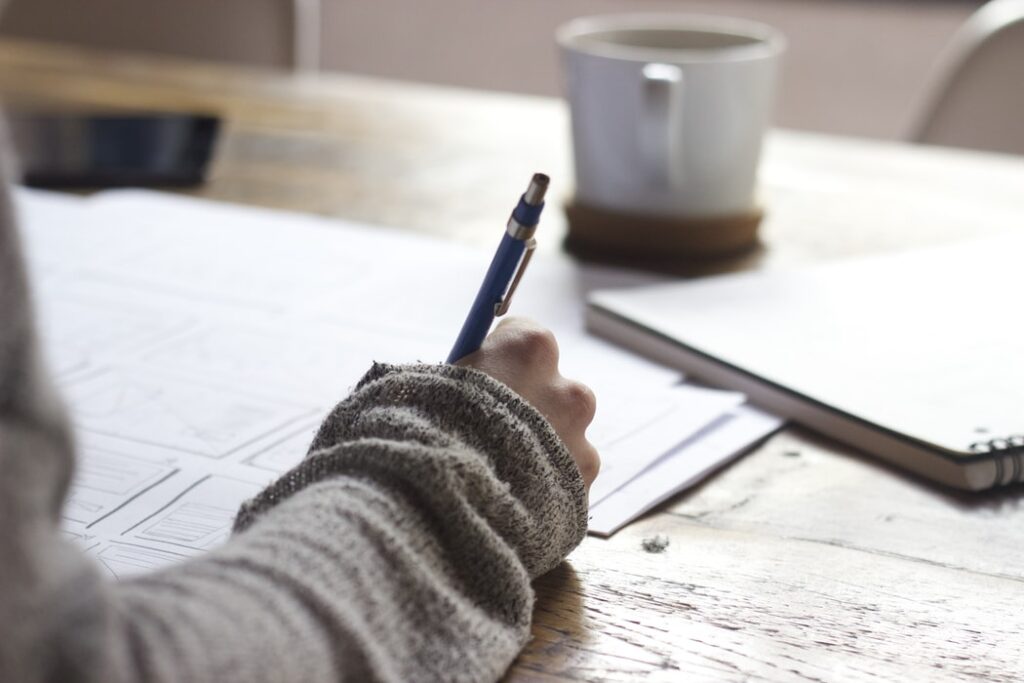
Remember that elevator scene from You’ve Got Mail? The one where Joe Fox, acted by Tom Hanks, and his girlfriend get stuck in an elevator with two other people and they each tell what they’ll do “if I ever get out of here.” I keep thinking about that scene.
“I’m gonna start speaking to my mama,” one woman says.
“I’m marrying Irene. I love her. I should marry her. I don’t know what’s been stopping me,” says the elevator attendant.
When Joe’s girlfriend interrupts his heart-felt survival wish to blurt out that she’s getting her eyes lasered when she gets out, Joe realizes he’s with the wrong woman.
Joe later writes to Kathleen: “There was a man sitting in the elevator with me who knew exactly what he wanted, and I found myself wishing I were as lucky as he.”
Intense life experiences illuminate the essential and dim the superficial. But we can easily miss the chance to extract meaning from our conflict and questions if we don’t stop and reflect. One man in hospice said cancer eventually led him to transform neutral moments in life into meaningful ones.
This pandemic is our elevator moment.
Educational reformer John Dewey once wrote that we “we do not learn from experience … we learn from reflecting on experience.” Teachers, spiritual leaders, athletes, business professionals, poets, and scientists already know the value of self-reflection.
Poet and novelist May Sarton wrote in her published journals, “friends, even passionate love, are not my real life unless there is time alone in which to explore and to discover what is happening or has happened.”
When I was a teacher, I often assigned “reflections” to my middle school students after field trips, science experiments, or completing a novel as a way of shifting lived knowledge into their longer term memory. Studies show that reflecting on past experiences aid more in learning and personal growth than shoring up new knowledge.
In ancient history, the Hebrews celebrated a festival called the Feast of Booths. They wanted to remember their years of wandering in the desert when the temple of God was a temporary structure called a tabernacle. Other versions of the Bible translate the word “booth” as “shelter.”
After their experience of lostness and despair, they continued to celebrate the Feast of Shelters even after they were safe, secure and settled back in their own land. Why bother remembering something so difficult? Those of us who have lived through 2020 may also benefit in the future from instituting a similar Feast of Shelters to reflect each year on what we learned when the threat of sickness and our shuttered doors forced us to educate our children at home and erase every plan from our calendars.
Experts agree that reflection is an essential practice for those desiring a vibrant interior life. Professor Graham Gibbs created a model for personal reflection called the “Reflective Cycle.” His chart includes:
1. Description: What happened?
2. Feelings: What were you thinking and feeling?
3. Evaluation: What was good and bad about the experience?
4. Analysis: What sense can you make of the situation?
5. Conclusion: What did you learn? What would you do differently?
6. Action: If this happened again, what would you do?
As the tide of our society ebbs and flows around new guidelines and policies, fumbling for a new normal, we can benefit from self-reflection.
If we have the discipline (and courage) to carve out time to ask, write our answers, listen, and maybe even pray, these questions can guide us:
- What’s been good? (i.e. gains, good surprises, successes)
- What been hard? (i.e. losses, fears, worries, deaths, disappointments, inconveniences, discomforts, failures)
- What has changed? (i.e. job, school, new skills, family dynamics, friendships, church, community, etc.)
- How has my relationship with technology, social media, and the digital life changed? What will I abandon? What will I retain?
- How have I seen or experienced God, religion, or the spiritual life through this experience?
- What have I learned about my family, children, spouse, neighbors, roommates, or community?
- What have I learned about myself? What have I needed most during this time?
- Which books, movies, or songs have comforted me at this time?
- If this happens again, what will I do differently?
- How have I experienced healing?
- How have I experienced pain?
- What changes do I want to carry over with me to the other side?
- What changes do I need to make so that can happen?
Before the world opens again completely (assuming that day comes), we can grasp this unique opportunity to pause and do some soul searching:
What have we learned, how have we grown, and what will we carry with us into the future?
